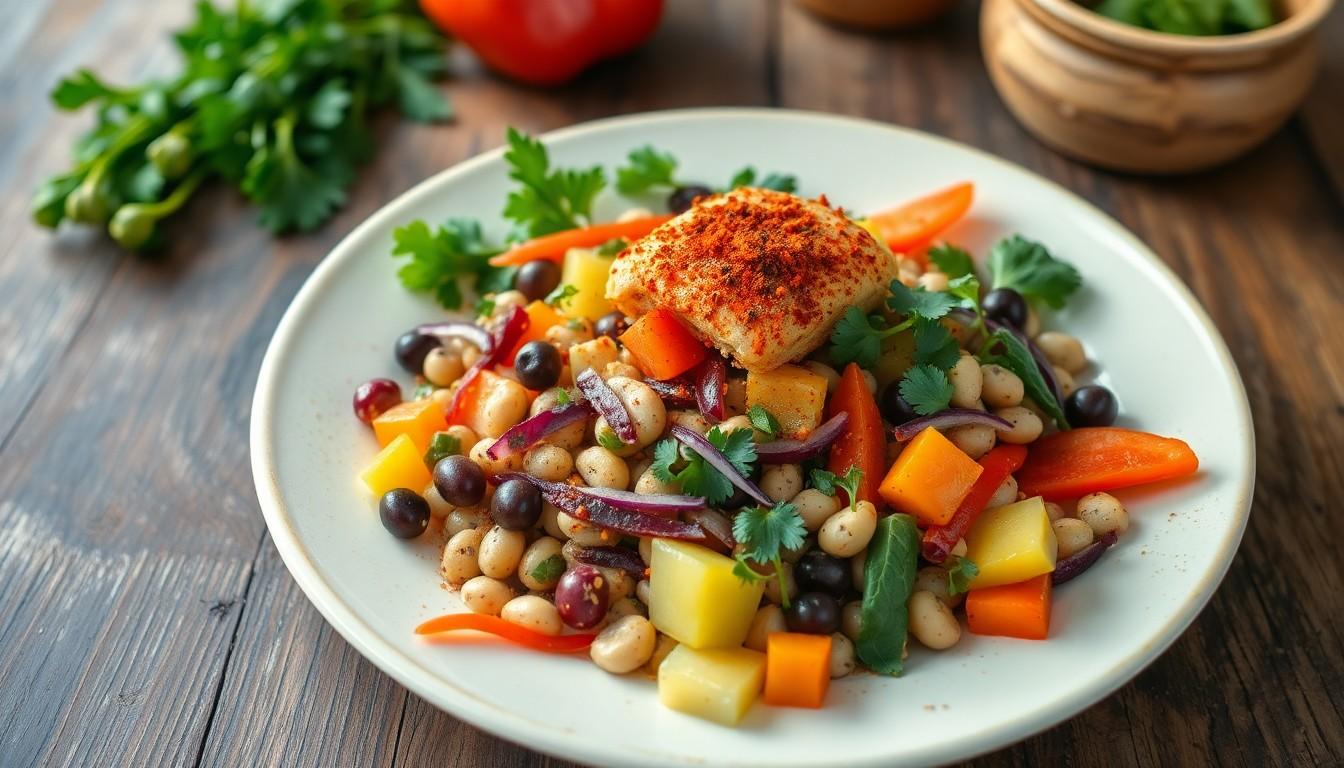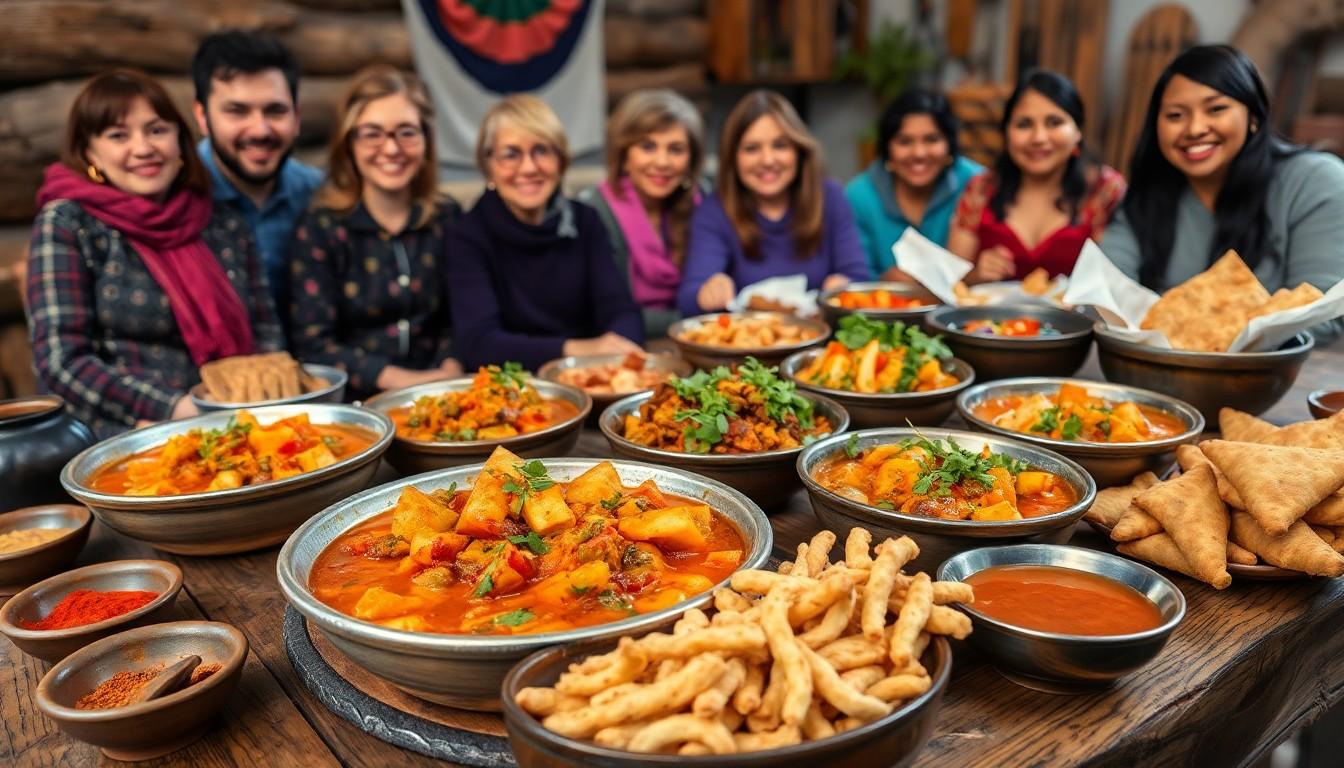Jazamui food isn’t just a meal; it’s an experience that tickles the taste buds and warms the soul. Imagine flavors dancing on your palate like a culinary ballet. This delightful cuisine brings together vibrant spices and fresh ingredients, creating dishes that are as colorful as they are delicious.
Curious about what makes jazamui food so special? From savory stews to crispy snacks, each dish tells a story of tradition and innovation. Whether you’re a seasoned foodie or just looking to spice up your dinner routine, diving into the world of jazamui food is a journey worth taking. Get ready to explore tantalizing recipes and discover the secrets behind this mouthwatering cuisine. After all, who wouldn’t want to impress their friends with a jazamui feast?
Overview of Jazamui Food
Jazamui food showcases an array of vibrant spices and fresh ingredients, creating a unique culinary experience. Combining tradition with innovation, recipes reflect a rich cultural heritage. Savory stews feature hearty proteins, beautifully complemented by aromatic herbs and spices. Crispy snacks offer delightful textures, perfect for any gathering.
Colorful presentations enhance the visual appeal of each dish. Meals often include staple components like rice and legumes, grounding the menu with familiar flavors. Seasonal ingredients play a crucial role, ensuring freshness in every bite. Traditional cooking methods preserve authenticity while adding distinctive tastes.
Culinary enthusiasts appreciate the versatility of jazamui food. Even simple preparations result in complex flavors that excite the palate. Many recipes cater to various dietary preferences, making jazamui food accessible to all. Street food culture highlights quick bites that satisfy cravings on the go.
Local dining establishments often emphasize this cuisine’s communal aspect, encouraging shared meals among family and friends. Visitors to regions known for jazamui food discover a vibrant food scene, rich with opportunities for exploration. Engaging in this culinary journey allows individuals to connect with the community and traditions.
Those curious about jazamui food can find resources ranging from cookbooks to online tutorials. These tools provide insights into cooking techniques and ingredient sourcing. Experimenting with jazamui dishes at home opens doors to new flavors and cooking styles.
Nutritional Benefits of Jazamui Food

Jazamui food offers a range of nutritional benefits that contribute to overall well-being. These meals are not only delicious but also packed with essential nutrients.
Vitamins and Minerals
Jazamui cuisine incorporates a variety of fresh vegetables and herbs, providing a rich source of vitamins A, C, and K. These nutrients support immune function, enhance skin health, and promote healthy bones. Incorporating legumes and whole grains delivers key minerals like iron, magnesium, and potassium. This combination helps maintain energy levels and supports metabolic functions. Furthermore, the use of vibrant spices adds antioxidants that combat inflammation, contributing to long-term health benefits.
Health Benefits
Regular consumption of jazamui food can aid in weight management due to its high fiber content from legumes and vegetables. Fiber assists in digestion and promotes a feeling of fullness, reducing overall calorie intake. Additionally, many jazamui dishes are low in saturated fats, which supports heart health. The presence of various herbs and spices also offers anti-inflammatory properties, potentially lowering the risk of chronic diseases. Overall, the combination of fresh ingredients and traditional cooking techniques creates meals that nourish the body and delight the palate.
Preparation and Cooking Methods
Jazamui food preparation highlights the unique blend of tradition and modernity. Authentic techniques complement the vibrant flavors, offering a rich culinary experience.
Traditional Recipes
Traditional jazamui recipes celebrate community gatherings and family connections. Stews integrate various vegetables and meats, simmering for rich flavor development. Common spices like turmeric, cumin, and coriander bring warmth to dishes. Rice accompanies meals, absorbing aromatic broths beautifully. Preparation methods involve marinating proteins to enhance tenderness and infuse flavors. Techniques such as slow cooking and grilling optimize ingredient profiles, ensuring an authentic taste. Hand-ground spices build depth, while recipes often pass through generations, preserving cultural heritage.
Modern Adaptations
Modern adaptations of jazamui cuisine embrace creativity and convenience. Chefs experiment with fusion elements, merging jazamui flavors into international dishes. Plant-based alternatives cater to dietary preferences, ensuring inclusivity. Quick preparation methods streamline weekday cooking without sacrificing taste. Innovative presentations, like jazamui-inspired bowls and wraps, enhance visual appeal. The incorporation of global ingredients reflects evolving palates, while maintaining core jazamui characteristics. Recipes encourage exploration, inviting home cooks to experiment while appreciating traditional roots.
Cultural Significance of Jazamui Food
Jazamui food embodies deep cultural roots, showcasing traditions passed down through generations. Celebrations often feature jazamui dishes, serving as a centerpiece during social gatherings and festivals. Families gather to share meals, emphasizing the communal aspect of dining and fostering connections.
Seasonal ingredients play a vital role in the cuisine, reflecting the local environment and agriculture. Local markets provide fresh produce, creating a strong bond between the community and its culinary practices. Recipes are often created to honor ancestral heritage, preserving historical flavors while encouraging innovation.
Traditionally, jazamui meals are prepared for rituals and significant life events. Foods crafted during weddings, births, or other milestones highlight their importance in cultural ceremonies. The act of cooking and sharing these meals fosters unity and strengthens familial ties.
Recipes gain additional meaning through storytelling, where elders pass down culinary wisdom to younger generations. This oral tradition ensures that not only the flavors remain, but also the histories and experiences behind each dish. Spices and flavors often evoke memories, making the dining experience personal and significant.
Moreover, the significance of jazamui food extends beyond taste. Many dishes symbolize prosperity, health, or gratitude, anchoring them in cultural beliefs and practices. Each meal tells a story, reinforcing the values and identity of the community.
Ultimately, the cultural importance of jazamui food lies in its ability to unite individuals, celebrate heritage, and adapt while maintaining a strong connection to its roots. Authentic preparation methods highlight the community’s commitment to preserving culinary customs while welcoming contemporary adaptations.
Conclusion
Exploring jazamui food reveals a vibrant tapestry of flavors and traditions that resonate deeply within its cultural roots. This cuisine not only delights the palate but also fosters connections among families and communities. With its emphasis on fresh ingredients and rich spices, jazamui food offers a unique culinary experience that invites experimentation and creativity in the kitchen.
As food enthusiasts discover the nutritional benefits and diverse recipes, they can appreciate the balance of tradition and modernity that defines jazamui cuisine. Whether enjoying a hearty stew or a quick street food snack, each dish tells a story of heritage and innovation, making it a worthy addition to any dining experience. Embracing jazamui food opens doors to a world of flavors that nourish both body and spirit.

